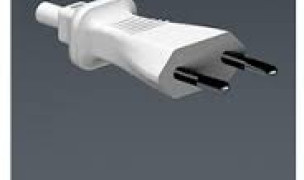 5 Terms
5 TermsHome > Terms > English (EN) > Battle of Laing's Nek
Battle of Laing's Nek
The Battle of Laing's Nek was a major battle between the British Empire and the Boer dominated South African Republic fought at Laing's Nek during the First Boer War on 28 January 1881. After the Boer declaration of independence for the Transvaal in 1880 the British suffered a series of disastrous defeats in attempting to regain the territory. On 20 December 1880, Lieutenant-Colonel Philip Robert Anstruther and elements of his regiment, the 94th, marched from Lydenburg to Pretoria, the regiment’s band leading the column playing the popular song “Kiss Me, Mother Darling”. At Bronkhorstspruit the force was stopped by Boers who courteously required the “Red Soldiers” to turn back. Armstrong equally courteously refused at which the column was devastated by rifle fire from the surrounding Boer ambush. Of the 259 in the column, 155 officers and men became casualties as did some of the women accompanying the regiment. Instead of waiting for the reinforcements, the British High Commissioner for South East Africa, Major General Sir George Pomeroy Colley, assembled what troops he could and rushed forward, claiming to be moving to relieve the British garrisons in the Transvaal. Colley gathered his force at Newcastle in Natal, dispatched an ultimatum to the Boers and, on its rejection, advanced towards the Transvaal border. The first British camp on the march lay some 4 miles short of Laing’s Nek, a ridge in the foothills of the Drakensberg mountains that blocked the road between Newcastle and Standerton in Natal, South Africa. The British Natal Field Force, commanded by General Colley, numbered around 1,216 officers and men, including 5 companies of the 58th Regiment, 5 companies of the 3rd Battalion, the 60th Rifles, about 150 cavalry of the Mounted Squadron, a party of Royal Navy sailors and 4 guns of the Royal Artillery. The Boers, under the command of Commandant-General Joubert had about 2,000 men in the area, with at least 400 fortifying the heights around Laing's Nek. They had little difficulty in repulsing General Colley's inadequate force. On the morning of 28 January, Colley tried to force a way through the pass. The battle began at around half past nine with a heavy bombardment with four 9-pound guns and two 7-pound guns of the British Naval Brigade pounding the Boer positions on Table Hill. Ten minutes later, the main British force, made up of the 58th Regiment, went forward and had difficulty advancing over the broken ground towards the summit. Further down the line, the Mounted Squadron made a charge against the Boer positions on nearby Brownlow's Kop. But, on reaching the summit, the British cavalry were fired upon by a line of entrenched Boers on the reverse slope and suffered many casualties, forcing them to withdraw. By 10:30, with their threat to their flank removed, the Boers moved to attack the 58th Regiment still advancing on Table Hill where at 11:00, at reaching the top of the summit, the British were fired upon by concealed Boers in trenches just 160 yards (150 m) away and suffered even more casualties, including both commanding officers, Major Hingeston and Colonel Deane being killed. While this was happening, a small party of Boers actually advanced from their positions on the lower slopes of nearby Majuba Hill and engaged the Naval Brigade near the British camp at Mount Prospect. Return rifle fire from the British kept the Boers back. By 11:10, two companies of the 3/60th Rifles moves up Table Hill to cover the retreat of the 58th Regiment and by noon, the battle was over. The British lost 84 killed, 113 wounded, and 2 captured during what was perceived as a fiasco. Most of the casualties were in the 58th Regiment with 74 killed and 101 wounded, around 35% of their total strength. Among those killed in the battle were many of General Colley's staff including Major Poole and Lieutenants Dolphin, Elwes and Inman. The Boers reported their losses at 14 killed and 27 wounded. One month later, General Colley was killed at the Battle of Majuba which ended the war, after which Transvaal was recognised as an independent state.
- Part of Speech: proper noun
- Synonym(s):
- Blossary:
- Industry/Domain: History
- Category: African history; British history
- Company:
- Product:
- Acronym-Abbreviation:
Other Languages:
Member comments
Terms in the News
Billy Morgan
Sports; Snowboarding
The British snowboarder Billy Morgan has landed the sport’s first ever 1800 quadruple cork. The rider, who represented Great Britain in the 2014 Winter Olympics in Sochi, was in Livigno, Italy, when he achieved the man-oeuvre. It involves flipping four times, while body also spins with five complete rotations on a sideways or downward-facing axis. The trick ...
Marzieh Afkham
Broadcasting & receiving; News
Marzieh Afkham, who is the country’s first foreign ministry spokeswoman, will head a mission in east Asia, the state news agency reported. It is not clear to which country she will be posted as her appointment has yet to be announced officially. Afkham will only be the second female ambassador Iran has had. Under the last shah’s rule, Mehrangiz Dolatshahi, a ...
Weekly Packet
Language; Online services; Slang; Internet
Weekly Packet or "Paquete Semanal" as it is known in Cuba is a term used by Cubans to describe the information that is gathered from the internet outside of Cuba and saved onto hard drives to be transported into Cuba itself. Weekly Packets are then sold to Cuban's without internet access, allowing them to obtain information just days - and sometimes hours - after it ...
Asian Infrastructure Investment Bank (AIIB)
Banking; Investment banking
The Asian Infrastructure Investment Bank (AIIB) is an international financial institution established to address the need in Asia for infrastructure development. According to the Asian Development Bank, Asia needs $800 billion each year for roads, ports, power plants or other infrastructure projects before 2020. Originally proposed by China in 2013, a signing ...
Spartan
Online services; Internet
Spartan is the codename given to the new Microsoft Windows 10 browser that will replace Microsoft Windows Internet Explorer. The new browser will be built from the ground up and disregard any code from the IE platform. It has a new rendering engine that is built to be compatible with how the web is written today. The name Spartan is named after the ...
Featured Terms
phylum placozoa
Macroscopic, flattened marine animals, composed of ventral and dorsal epithelial layers enclosing ...
phylum cnidaria
Cnidarians. Hydras, hydroids, jellyfish, sea anemones, and corals. Free-swimming or sessile, with ...
share a term with millions
Share a term with millions of users around the world and increase your online visibility.Share a ...
oak
Genus native to the Northern Hemisphere with spirally arranged leaves, catkins for flowers and ...
Everest
The last but not least mount Everest. The Earth's highest mountain, with a peak at 8,848 metres ...
aglaonema
Genus of about 20 species of usually rhizomatous, evergreen perennials from tropical forest in Asia. ...
Robojelly
Robojelly is a hydrogen-powered robot desgined in the United States that moves through the water ...
Ferdinand Porsche
Ferdinand Porsche (3 September 1875 – 30 January 1951) was an Austrian-German automotive engineer ...
Marzieh Afkham
Marzieh Afkham, who is the country’s first foreign ministry spokeswoman, will head a mission in east ...
define1
Share a term with millions of users around the world and increase your online visibility.Share a ...
Contributor
Featured blossaries
rufaro9102
0
Terms
41
Blossaries
4
Followers
International plug types
 5 Terms
5 Terms
Browers Terms By Category
- Railroad(457)
- Train parts(12)
- Trains(2)
Railways(471) Terms
- General architecture(562)
- Bridges(147)
- Castles(114)
- Landscape design(94)
- Architecture contemporaine(73)
- Skyscrapers(32)
Architecture(1050) Terms
- Prevention & protection(6450)
- Fire fighting(286)
Fire safety(6736) Terms
- Pesticides(2181)
- Organic fertilizers(10)
- Potassium fertilizers(8)
- Herbicides(5)
- Fungicides(1)
- Insecticides(1)





